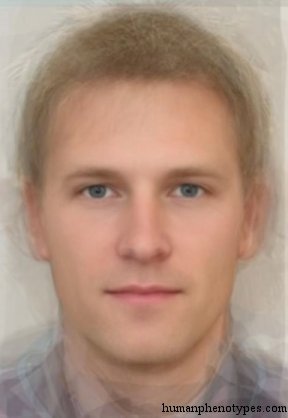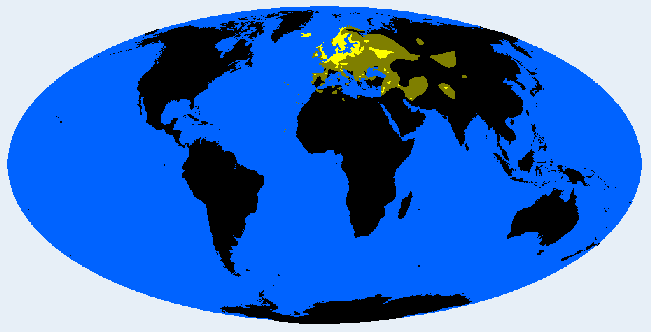Description
Depigmented, rather tall and long to medium-skulled, relatively large-headed group, found in its highest frequencies in Northern Europe. Facial features are marked, curved occiput, orthognathic, nose high and narrow, forehead high and slightly receding, chin sturdy, lips thin, legs rather long. Started to develop during the Upper Paleolithic when Cro-Magnons settled in Europe. Reached its modern form after the influx of Indo-European migrants from the East around 5000 BCE (e.g. Corded Ware). Modern East Nordids (ProtoNordids, Aisto Nordids) still resemble those early migrants, the broader-faced Dalo Faelids still show similarities to Cro-Magnons. In the East, Nordids tend to be high-skulled, in the West, low-skulled. The Hallstatt type is usually seen as the most typical modern variety. Trønders are common in Scandinavia, the Anglo-Saxon variety in Western Europe. Colonists spread Nordids all over the world (e.g. America, Australia, South Africa).
Physical Traits
Height: Tall
Build: Rather tall
Skull: Long to medium-skulled
Face: Marked features
Nose: High and narrow
Skin: Depigmented
Forehead: High and slightly receding
Chin: Sturdy
Lips: Thin
Legs: Rather long
Occiput: Curved
Profile: Orthognathic
The Nordid type exhibits a distinctive combination of physical characteristics. The head is relatively large, with a long to medium skull shape. Facial features are well-marked, with a high and narrow nose, high forehead that slightly recedes, and a sturdy chin. The lips are characteristically thin. The build is rather tall with notably long legs. The pigmentation is reduced (depigmented), typical of Northern European populations. The occiput (back of skull) shows a curved profile, and the face is orthognathic (having a relatively flat facial profile).
Literature References
The Nordid type has been described under various names in anthropological literature:
- Nordid (Eickstedt, 1952; Lundman, 1967; Vogel, 1974; Knussmann, 1996)
- Nordisk (Lundman, 1988)
- Nordic (Hooton, 1946; Coon et al., 1950; Cole, 1965; Debets, 1974)
- Nordique (Deniker, 1889; Vallois, 1968)
- Nordica (Biasutti, 1967)
- Atlanto-Baltic (Cheboksarov, 1951)






